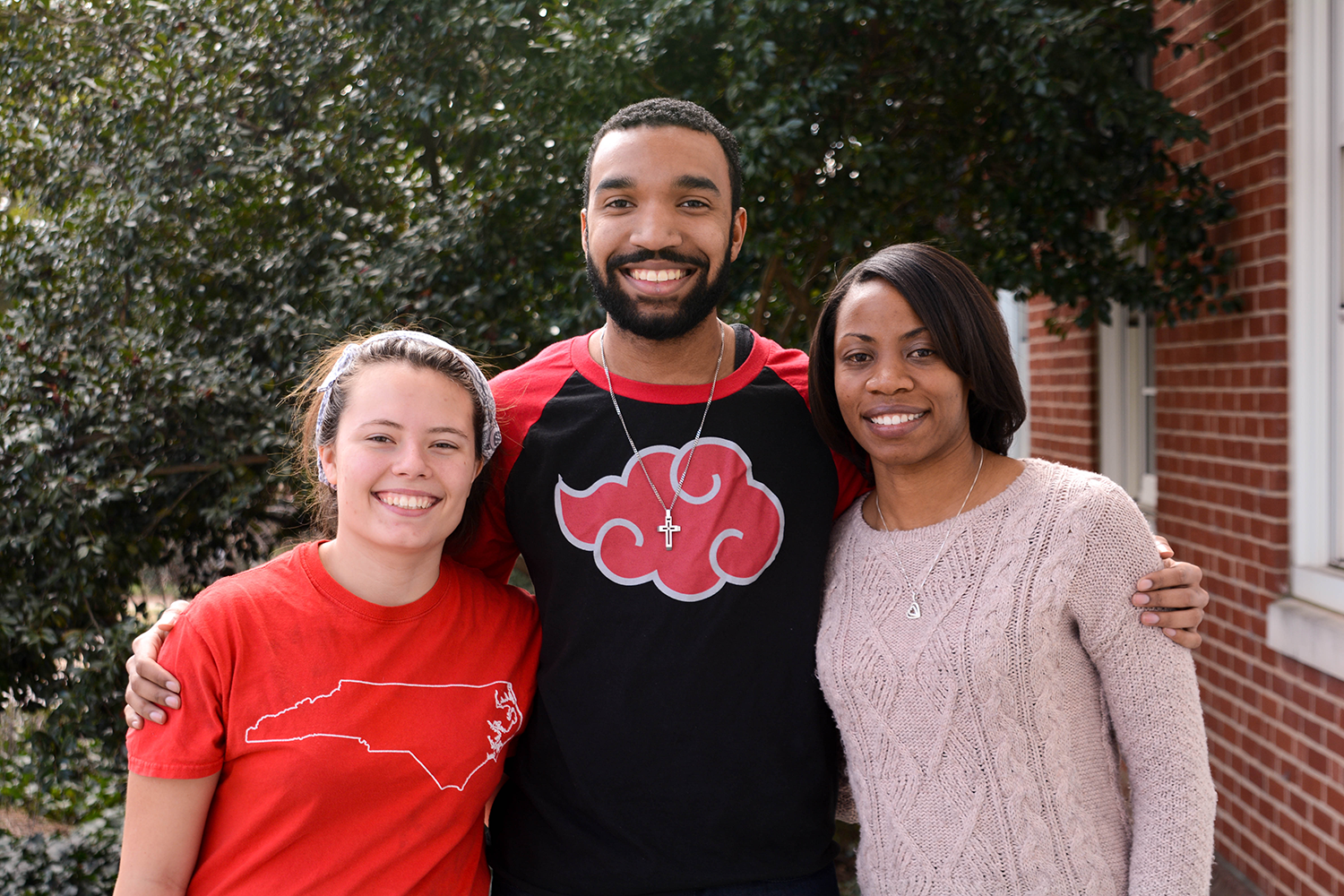Physics Students Think and Do

When inappropriate messages were posted on a social media network last fall, physics students Austyn Long and Elliott Holliday, both juniors, turned their thoughts into action. Dr. Sharonda LeBlanc, a post-doc at UNC-Chapel Hill in chemistry and physics and co-chair of the NC Women of Color Research Network regional chapter, joined them.
Long, who is president of the Society of Physics Students, recounted what happened. After Student Government hosted a town hall meeting for the campus following the incident, she and Holliday, a College of Sciences Ambassador and member of the Society of Multicultural Scientists, both felt that more could be done to educate their fellow students about how to better understand and avoid the types of behaviors and actions that are seen by many as unacceptable in an increasingly diverse campus community.
The two students wanted to make clear that while free speech may be protected, the campus community certainly does not condone hurtful speech, nor accept it. They also noted that a very busy student in a STEM field could easily graduate without having given much thought to the struggles that others experience.
After more thought and discussion, Long spoke with Dr. Jamila Simpson, assistant dean for diversity and student services in the College of Sciences. Simpson coordinates diversity efforts in the college (see the Digest article from February 18, 2016). Long’s idea was to hold a workshop for physics students in which discussion about diversity could happen. Simpson encouraged them.
During the same week, a larger group of students was invited to attend a faculty department heads meeting, in which they shared their concerns and received positive feedback for doing so. The students felt gratified by the positive response from faculty, and Long and Holliday decided to prepare to hold the workshop within the week.
Long modestly recounted that she felt somewhat unqualified to facilitate a diversity workshop but at the same time was excited by the response and the potential benefits. As a female in a majority male discipline, she could identify with other underrepresented groups and have become friends with Holliday, who is African American. The two share a common awareness and understanding of difference, and how it affects their academic experience.
Nearly 30 students and faculty attended the workshop. The students prepared talking points to start the conversation, covering topics such as bias, privilege and microaggressions. Long reported that students were “extremely willing to engage and ask questions.” LeBlanc added that there were “good conversations, and people stepped up to ask difficult questions that needed to be discussed.”
Dr. Paul Huffman, professor and interim head of physics, lauded the students’ accomplishments. “I was really impressed with how many people were there and that no one left for two hours. The dialogue was civil and caring.”
Dr. David Brown, professor of physics and director of undergraduate programs, agreed. “The Physics department has always strived to be welcoming to everyone, so we are very sensitive to these issues. We try to foster efforts in these areas, both at the department and college level.”
Energized by the positivity of the experience, Long affirms that “this kind of program would be cool to see across the university. Dr. Simpson does a wonderful job with first-year students, but training could continue — to create leaders to address problems and bring change, more than just understanding.”
LeBlanc agrees that there need to be more “safe spaces” where there can be ongoing conversations about diversity. “You can’t just do it once and expect everything to be better.”
Holliday noted that diversity training “should not just be a ‘checkbox’ that can be completed and dropped. Challenges will continue, and we need to continue to address them.” Holliday would like to see diversity training required of all students.
The Office for Institutional Equity and Diversity thanks these students for their commitment to thinking actively and acting thoughtfully.
NC State. Think and Do.


